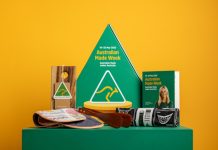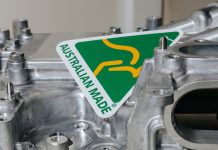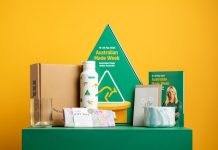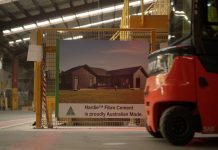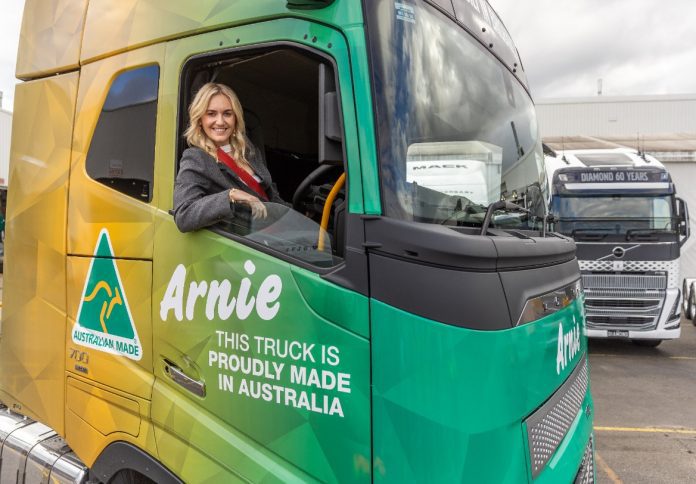
Olympic champion swimmer Ariarne Titmus launched Australian Made Week today from the driver’s seat of a locally manufactured Volvo truck named ‘Arnie’, in a symbolic show of support for Australian manufacturers and the value of buying local.
The campaign, led by the Australian Made Campaign, is a nationwide initiative aimed at highlighting the economic and social benefits of choosing locally made products.
The official launch was hosted by Volvo Group Australia at its Brisbane manufacturing facility, where the company produces Volvo and Mack trucks for Australian conditions.
Titmus, a proud Tasmanian and two-time Olympic gold medallist, expressed her enthusiasm for backing Australian businesses and manufacturers.
“As a proud Aussie, I’m super excited to fly the flag for Australian Made goods and to recognise and celebrate the efforts and determination that it takes to be successful as a home-grown producer,” she said.
Australian Made Campaign Chief Executive Ben Lazzaro said the launch comes at a crucial time, with recent government support of $20 million encouraging Australians to buy locally.
“Australian Made Week highlights how choosing locally made products directly benefits our economy,” Lazzaro said. “It’s a powerful way for everyday Australians to support local workers, businesses, and industries that keep our communities thriving.”
New Roy Morgan research commissioned by the campaign reveals that 73 per cent of Australians are willing to buy more Australian-made products to reduce reliance on imports.
Additionally, 72 per cent say they would pay more for locally made goods, with half of those respondents willing to pay up to 10 per cent more.
Lazzaro noted that small changes in consumer behaviour could have significant economic outcomes.
“If every household spent just $10 more a week on Australian Made products, we’d inject an extra $5.6 billion into our economy and generate around 10,000 new jobs,” he said.
Volvo Group Australia President and CEO Martin Merrick said the company’s long-standing commitment to Australian manufacturing was reflected in both its products and workforce.
“We are proud of our 50-year heritage championing Australian innovation, engineering excellence and job creation by producing vehicles built tough for Australian conditions by Australians,” Merrick said.
According to the Australian Made campaign, more than 40,000 jobs are supported by businesses using the certified mark, contributing approximately $8 billion in annual revenue.
The research also showed that 84 per cent of Australians would be more likely to purchase a product if they knew it was made locally.
Women and regional consumers were found to be particularly supportive, with 47 per cent of women and 48 per cent of country residents more likely to buy Australian-made goods compared to 39 per cent of men.
“Whether it’s skincare or safety equipment, curtains or campervans – we can all play our part in giving Australian businesses a true home-ground advantage,” Titmus said.
More information about the campaign is available at australianmadeweek.com.au, and businesses can apply to use the logo at australianmade.com.au/apply.


